By Gabriel Mitchell
A ceasefire has been in effect as of two o’clock this morning, ending the recent escalation between Israel and Hamas. For eleven days, rockets from Gaza rained down on southern and central Israel. For eleven days, the Israeli military targeted Hamas and Islamic Jihad military infrastructure and personnel. Israeli and Palestinian civilians were killed.
Typically, Hamas and Israel will both declare victory. Last night, there were celebrations across East Jerusalem, the West Bank, and Gaza; the video below shows fireworks throughout East Jerusalem to mark the ceasefire:

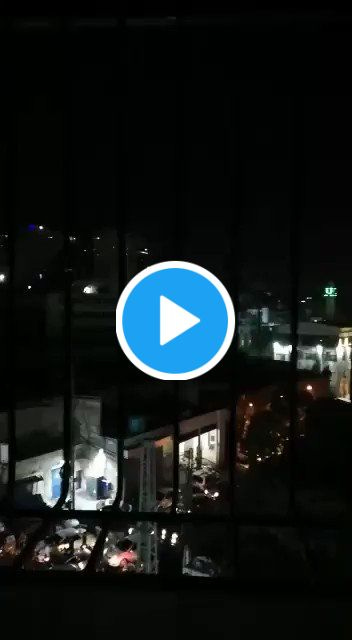
But there were no winners. There is no military solution to the conflict, even the one with Hamas.
When the adrenaline eventually wears off, we need a sober assessment, one that not only examines why this occurred and whether it could have been avoided—there are compelling arguments for and against—but what should be done now.
A House on Fire
In my neighborhood in South Jerusalem, it seemed a fairly routine month. Our daily schedule was not interrupted by the exchanges between police and protestors in Sheikh Jarrah and Damascus Gate, nor by the Jerusalem Day Flag Parade that brought thousands of nationalist and religious Jews to the Old City. Obviously, everyone was aware of these events, but it didn’t bring the city, or the country, to a halt.
Even on the Monday evening when Hamas launched three rockets toward the capital, it didn’t seem terribly unusual. I heard a faint siren, but nothing like the one that usually blares in our neighborhood on Israel’s memorial days. I summoned my confused kids to their bedroom, which serves as the family bomb shelter. My eldest daughter didn’t know what the siren meant and spent ten minutes complaining that I had interrupted her evening popsicle on the balcony. Our conversation about listening to one’s parents was interrupted by the sound of the Iron Dome batteries downing two rockets in succession—but only briefly. A few minutes later, I went back to my evening routine.
Residents of Jerusalem’s Old City and Sheikh Jarrah neighborhoods had a very different experience. They were caught up in a cycle of protests, police crackdowns, and counter-protests that culminated in a violent exchange on the compound of the Temple Mount and al Aqsa mosque. Below, you can see police firing a stun grenade inside the mosque:
Nor was a normal month enjoyed by residents of Ashkelon, Ashdod, Netivot, Holon, Beer Sheva, Tel Aviv, Rishon LeTzion, or countless other towns within radius of Hamas’s improved arsenal. They spent much of the past eleven days in bomb shelters, hoping Israel’s qualitative military edge would hold up.
The residents of the Gaza Strip suffered greatly. Targeted Israeli airstrikes inevitably destroyed residential and commercial properties. The civilian body count included women and children. They are dual victims—captives to Hamas’s brutal regime and isolated from the outside world by a joint Israeli-Egyptian blockade.
The exchange of blows between Israel and Hamas was a familiar, deadly dance. New, however, and even more deeply disturbing, were the gangs of Israeli Jews and Arabs who roamed the streets of Israel’s mixed communities, targeting property and residents. The emotional and psychological blow to Jewish-Arab relations in Lod, Ramle, Haifa, Yafo, Bat Yam, and Akko has left wounds that may take a generation to heal.
The leadership crisis
In Israel, Prime Minister Benjamin Netanyahu’s political rivals had been discussing the possibility of bringing his twelve-year stint as premier to an end. Netanyahu was juggling his executive responsibilities while standing as a defendant in court; this uncertain moment followed two years of ceaseless elections and political deadlock. No one seemed to be in charge.
Meanwhile, the older generation in the Palestinian Authority—including, of course, President Mahmoud Abbas—has lost credibility in the eyes of the young, who are frustrated by their government’s impotence. They no longer believe Palestinian rights in East Jerusalem, the West Bank, and Gaza are important to the international community. They want a different future. Social media allows them to spread their message more widely than earlier generations could. Abbas’s cancellation of upcoming Palestinian national elections compounded grievances within their society, fueling embers that long smoldered beneath the surface.
Lack of leadership does not necessarily translate to violence, but radicals often seek to take advantage of it. The Jerusalem protests were not exclusively incited by Hamas, but Hamas officials seized the opportunity to score easy points with a disillusioned Palestinian public.
With Israel’s political leadership distracted, extremists such as newly-minted MK Itamar Ben Gvir—a racist whose agenda was legitimized by Netanyahu during the last election campaign—stepped in front of the cameras to incite and provoke, knowing full well how deadly the consequences could be.
Israel is no stranger to extremism, but the country’s silent majority has a lot of soul-searching to do. The stability of any civil society is dependent on a consensus about norms and values. As Thomas Hobbes argued in Leviathan, “‘True’ and ‘false’ are attributes of speech, not of things. And where speech is not, there is neither ‘truth’ nor ‘falsehood.’” Without speaking our norms into existence, we leave our moral code subject to ambiguity, misinterpretation, and decay.
Most Israelis and Palestinians want quiet. They don’t want conflict, and they don’t want to live their lives in fear or anger. They want to live with dignity. But many would prefer to ignore the painful reality: Our fates are growingly intertwined, and total separation is not possible. By failing to make a priority of intercommunal dialogue and conflict resolution, we allowed extremists to dictate the terms of engagement, and thus empowered them.
What should be done?
Events in Jerusalem triggered this round of conflict. Hamas made a calculated decision to exploit these tensions, and in doing so, tugged attention away from Jerusalem. But don’t be confused. Hamas’s rocket fire did nothing to solve the deep frustrations of East Jerusalemites toward the Palestinian leadership and the State of Israel alike. To fail to address the conflict of interests in East Jerusalem is to ignore the core of the conflict and set the stage for future tensions.
Gaza requires a different set of tools. Since Hamas’s violent takeover of the Gaza Strip in 2007, Gaza has been an ongoing security challenge for Israel. It has undermined the legitimacy of the Palestinian Authority. Despite blockades and a series of military operations, the terrorist group’s military capacity has only evolved and improved.
But Hamas doesn’t pose an existential threat. Should Israel continue its current policies, in the logic that its military edge allows it to endure these episodes? Could a change in policy have a positive impact and weaken Hamas’s influence? Could Israel’s partners—who offered us significant public support—help us find political solutions?


Jerusalem and Gaza are priorities, but the West Bank can’t be ignored just because it was comparatively quiet this past month. Only a year ago, Israel’s government was considering the annexation of territories there. Nor have questions been resolved about the future of the Palestinian Authority. Abbas’s decision to call off national elections contributed to Hamas’s decision to strike Israel. What can be done to facilitate the peaceful transfer of power in the post-Abbas era? Is it important that this process be democratic? If so, who should be permitted to vote, and who should be permitted to run? How can Israel and the international community empower constructive partners in the West Bank?
Finally, how can the wounds between Jews and Arabs within Israel be healed? Who are the partners required to form a new social contract? How can we use democratic institutions to address structural inequalities within Israeli society—by which not just Arabs, but most of Israel’s minority communities are disadvantaged? Israel’s Arab population, of whom many if not most identify as Palestinian, is a party to the conflict. It can be a part of finding solutions.
Each of these challenges possesses its own set of conditions and policy prescriptions. They are all part of a larger dynamic of Jews and Arabs, Israelis and Palestinians. Finding a solution to only one challenge won’t be sufficient, nor will any silver bullet resolve them all at once. It will require an active, coordinated effort—at the national, local, and grassroots levels—over the course of decades.
There are still people here who want to engage in dialogue, share their worldview, and listen to the other side. But many Palestinians readily admit to me that their children—the new generation whose voices rang out in recent weeks—no longer believe in a two-state solution. Polling data indicates that the same dynamics are at work in Israeli society.
It’s easy enough to say that most Israelis and Palestinians want peace. But I also know the majority don’t believe peace is achievable under the current circumstances, and don’t necessarily want to make the personal effort required to reach that goal.
Violence forced the conflict back into Israeli public discourse, but as the ceasefire endures, we will inevitably hear the familiar tropes. “We managed the situation pretty well.” “There is no one to talk to on the other side.” “Better the status quo than the alternative.” The wounds will calcify on the surface. People will forget their pain just long enough to be surprised when the next war comes.
The reading list below offers many perspectives. I do not endorse these views; I endorse reading and thinking about the points raised by the authors. Unless you read diverse views and consider their value, you can’t see the world through fresh eyes.
“The War That Shouldn’t Have Been,” by Neri Zilber.
The For Heaven’s Sake podcast, featuring Donniel Hartman, Yossi Klein Halevi, and Elana Stein Hain.
On property disputes in Sheikh Jarrah, I suggest a feature in Ha’aretz written by several Palestinian women who’ve chosen to adopt Sheikh Jarrah as their cause. “This has nothing to do with Sheikh Jarrah,” by Bassem Eid, and “I grew up in a divided Jerusalem,” by Gilead Sher offer other perspectives. I also recommend this reading list, compiled by Yael Mizrahi-Arnaud.
“Green-Lined Vision Is Blurring Reality in Israel-Palestine,” by Yousef Munayyer.
Read together: “Moral Clarity Versus Moral Depravity in Israel and Gaza,” by Joshua Hammer, and “For Years, Israel’s Leaders Have Cultivated Ethnic Hatred. This Is On Them,” by Dahlia Scheindlin. Nasreen Haddad Haj-Yahya, Director of the Arab Society in Israel program at the Israel Democracy Institute, addresses ways for Israel to address the tensions in its mixed cities, where Jews and Arabs have lived side by side for decades.
Michael Koplow, Policy Director at the Israeli Policy Forum, and Hussein Ibish, senior resident scholar at the Arab Gulf States Institute in Washington, have written columns about the steps that need to be taken to avoid the next Israel-Hamas war and the future role of external actors in keeping the peace, and perhaps advancing it.
Biden’s missing man in Jerusalem, by Nahal Toosi.
Khalil Shikaki, the Director of the Palestinian Center for Policy and Survey Research and one of the most recognized experts on Palestinian public opinion, asks how this confrontation will affect the prospects for a long-term peace. “On the Israeli-Palestinian front, the two-state solution might have received a mortal blow.”
Gabi Mitchell is an Israeli think-tanker. Gabi kindly gave us permission to reproduce parts of this essay from Invisible Boundaries.




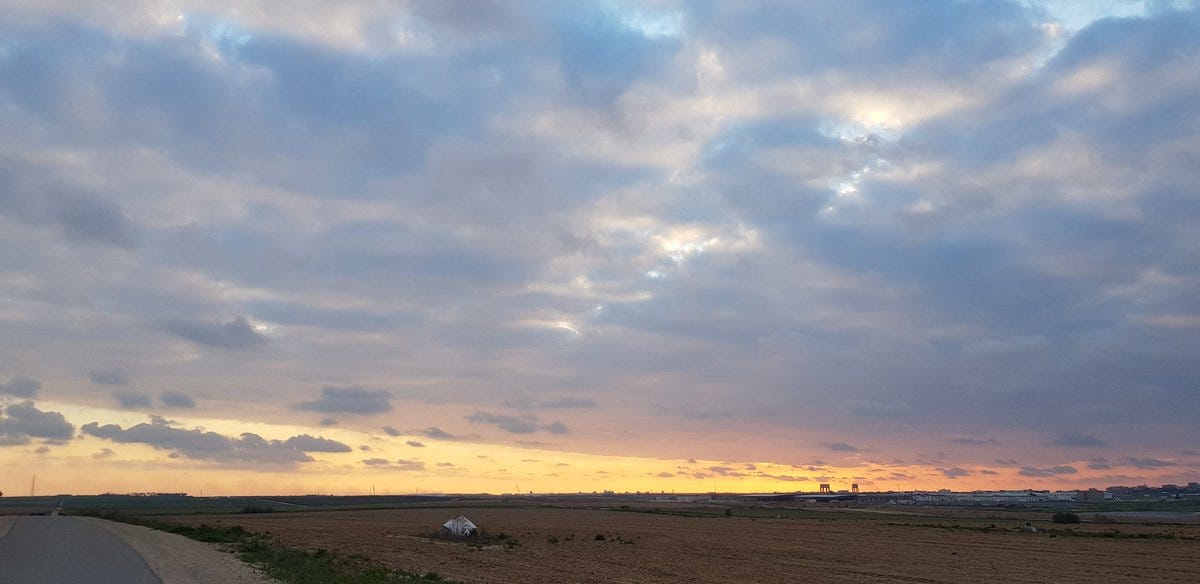

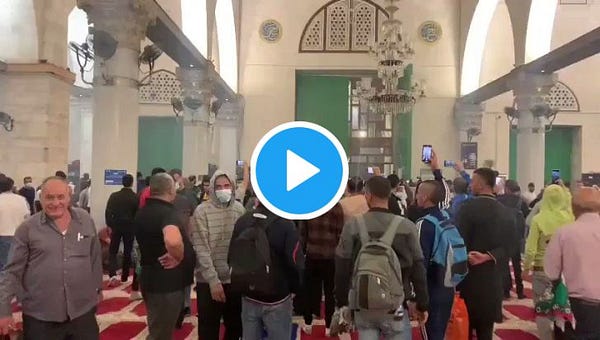

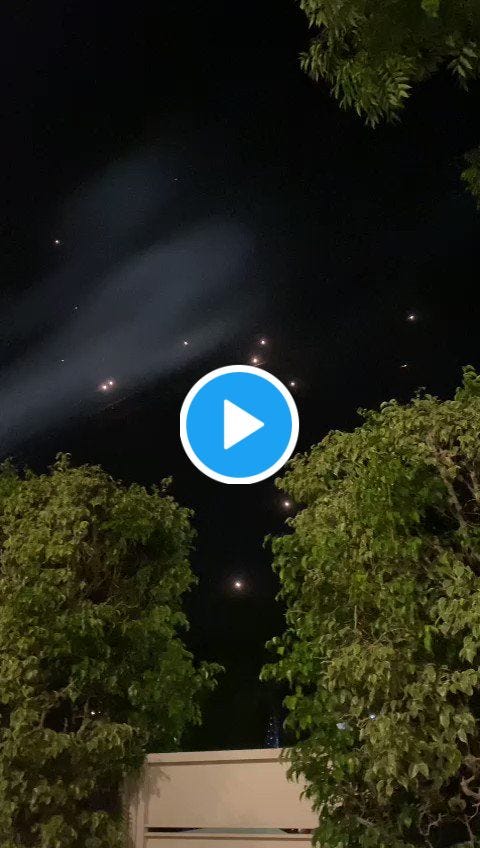
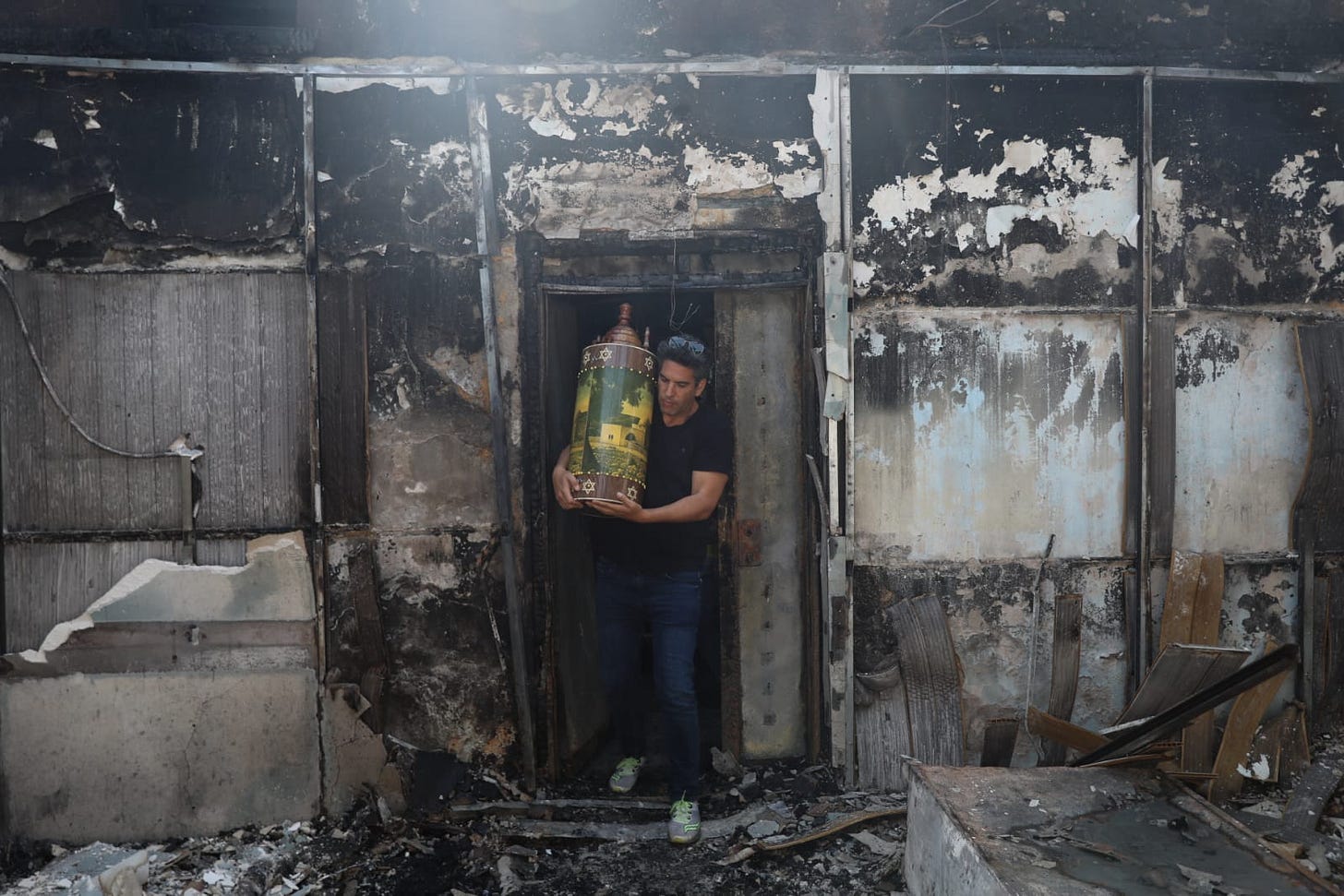
My eyes are too old and tired to be seen through, freshly. However...
This strikes me as the issue at heart, and perhaps Gabi or others can provide me with a little fresh eyesight: "It’s easy enough to say that most Israelis and Palestinians want peace. But I also know the majority don’t believe peace is achievable under the current circumstances, and don’t necessarily want to make the personal effort required to reach that goal."
The question in this American's mind is "Do they really want peace? And are they simply beholden to the recalcitrance of their political leaders?" Or, do they claim to want peace, but at the same time both sides' public endorse policies that are untenable to the other sides' public? If I'm an ethnic and/or religious Jew in Jerusalem, who claims to want peace, but enforce public officials and policies that the average Palestinian cannot support, am I contributing to the problem? And vice-versa.
I don't know the answer...so I'm asking.
Given sufficient military power, there’s always a military solution. The question is: Would it serve the political objective? Obviously, the IDF could crush Hamas under its boot heel. But that would not answer for policy.
As things stand, Israel’s policy is—or should be—simply to stand pat. Her enemies cannot destroy her, nor are they willing to negotiate in good faith. Thus they can be ignored unless they make a nuisance of themselves, in which case they can be slapped down, as has just happened to those Hamas rats. Admittedly this is not an ideal state of affairs for the Jewish state. But for Israel’s enemies, it’s even less satisfactory.